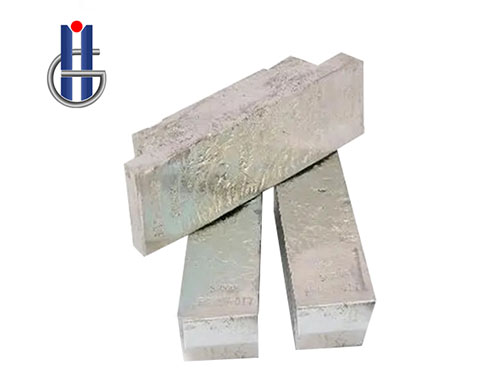In the realm of metallurgy and alloy development,
lead-tin bars emerge as versatile solutions with applications spanning various industries. This alloy, comprising a combination of lead and tin, is renowned for its unique properties that make it indispensable in manufacturing and engineering processes. Let's delve into the diverse applications and characteristics that define
lead-tin bars as key players in the world of metallurgy.
Lead-tin bars are widely recognized for their malleability and low melting point, characteristics that contribute to their suitability for various applications. The alloy's ability to undergo deformation without fracture makes it a favored choice in soldering and brazing processes. In electronic manufacturing, lead-tin bars are commonly used for soldering components on printed circuit boards, providing reliable electrical connections in a wide range of devices.
The eutectic composition of lead-tin alloys, with a melting point of around 183 degrees Celsius, further enhances their utility in soldering applications. This specific composition ensures a sharp melting point, allowing for precise control during the soldering process. The low melting temperature minimizes thermal stress on delicate electronic components, making lead-tin bars an ideal choice for joining materials in electronics and electrical engineering.
Beyond the electronics industry, lead-tin bars find application in the creation of bearings and bushings. The alloy's lubricity and anti-friction properties make it well-suited for use in machinery, where it helps reduce wear and friction between moving parts. This contributes to the longevity and efficiency of mechanical systems in various sectors, including automotive, manufacturing, and aerospace.
The corrosion resistance of lead-tin bars is another noteworthy attribute, adding to their durability and reliability in challenging environments. This resistance makes the alloy suitable for components exposed to harsh conditions or corrosive substances. Lead-tin bars are often employed in marine applications, where their corrosion-resistant properties contribute to the longevity of components in marine engines and equipment.
In conclusion, lead-tin bars are versatile alloys that play a crucial role in diverse industries. Their malleability, low melting point, and corrosion resistance make them ideal for soldering in electronics, manufacturing of bearings, and applications in harsh environments. As industries continue to demand reliable and adaptable materials, lead-tin bars remain at the forefront of alloy solutions, showcasing their importance in shaping the landscape of modern metallurgy and engineering.


 Exploring the Versatile World of Tin Wire Products: A Comprehensive Overview
Exploring the Versatile World of Tin Wire Products: A Comprehensive Overview
 Exploring the Uses and Advantages of Pure Tin Bars
Exploring the Uses and Advantages of Pure Tin Bars
 Spot Tin Ingots: Insights into Market Dynamics, Applications, and Global Trade Trends
Spot Tin Ingots: Insights into Market Dynamics, Applications, and Global Trade Trends